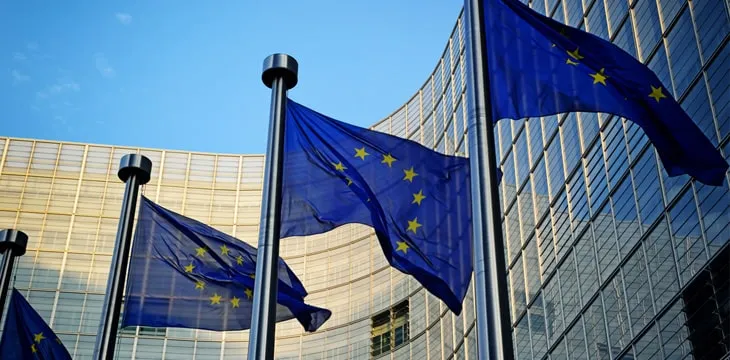|
Getting your Trinity Audio player ready...
|
A further delay to the final vote on the European Union’s Markets in Crypto Assets (MiCA) regulation pushed it back from February to April 2023 due to problems translating the almost 400-page file into the 24 official languages of the bloc.
This is the second delay to the regulation package since it was pushed back from an initial date in December last year. The full text of the regulation was finalized in October 2022. However, as EU laws and regulations must be translated into all the official languages of the bloc, delays are not uncommon.
Despite this latest hold-up, MiCA still looks set to pass its final vote when it eventually happens and should come into force in 2024 as planned.
MiCA sets the bar high
The EU is often cited as a regulatory trailblazer when it comes to the digital asset space, and MiCA is no exception. It’s the first attempt by a major regulatory or lawmaking body to develop a set of comprehensive rules to police and govern the virtual asset ecosystem, with over two years’ worth of debate having gone into its formation.
If, or more likely when, approved, the landmark regulation will bring with it a unified approach to digital assets across the EU, giving the 24 countries in the bloc 18 months to implement the rules.
The regulation package includes new classifications of different digital assets, as well as regulatory regimes molded to those different assets, and under the new rules, any company seeking to issue digital assets/coins will need to publish a white paper containing information about the project, including possible risks.
Another key feature will be requiring issuers of stablecoins to hold enough in reserve funds and provide proof of said funds to avoid a TerraUSD-style collapse, as seen in May of last year.
This latter point is a much-needed change, as so much of the digital asset space relies heavily on dubiously backed stablecoins, notably Tether, and should they lose their peg—as happened in the Terra case and as has reportedly happened at least once to Tether already—then a cascade of collapses could sweep over huge parts of the industry.
Another notable inclusion to the MiCA regulation will require miners to disclose their energy consumption—a compromise proposal added to appease the environmental lobby, after a proof-of-work (PoW) mining ban was ruled out.
France steps up preparations
In other MiCA adjacent news, Tuesday also saw lawmakers of the French National Assembly announce plans to make digital asset companies based in France seek authorization to operate.
As the country prepares for the introduction of MiCA, it has decided to accelerate the process of bringing its current rules in line with, or closer to, the proposed legislation package planned for 2024.
With this in mind, under the proposed plan announced in the National Assembly on Tuesday, companies in France will have to seek authorization from regulators to operate if they are not already registered with the country’s financial regulator by January 1, 2024.
This provides slightly more time than a previous plan, proposed by the Senate in December, which put the cut off date for registration at October this year.
“To allow the profession and the regulator to organize themselves… sufficient time should be provided. Therefore, the purpose of this amendment is beyond a few editorial changes, to make certification compulsory for new entrants from January 1, 2024,” said Daniel Labaronne, a member of the National Assembly and the Assembly’s Finance Committee who proposed the plan.
This new, slightly more generous timescale also allows the Financial Markets Authority more time to process applications, should they be inundated in the leadup to MiCA’s introduction.
It is likely countries around the bloc will be contemplating similar moves as the deadline for MiCA coming into force creeps ever closer.
Watch: Law & Order: Regulatory Compliance for Blockchain & Digital Assets

 07-06-2025
07-06-2025 





